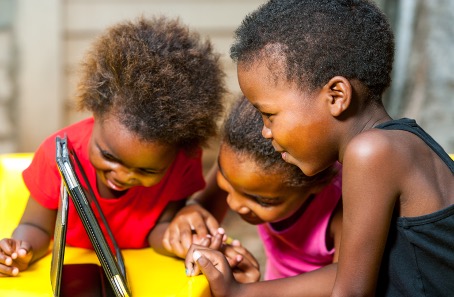
Audio By Carbonatix
There can be no doubt that Africa faces a major digital divide. While some people in the continent’s major cities can access a wide array of digital products and services at 5G speeds, others have little to no connectivity.
Bridging the digital divide needs a holistic approach that encompasses various considerations from the right technology to an enabling environment. That was the message from a panel session at the Sixth Sub Sahara Spectrum Management Conference on tackling global and regional digital divides.
Across Sub-Saharan Africa, approximately 800-million people are not connected to the mobile internet. While a large number of people (some 270-million) simply don’t have the requisite coverage, a far larger number (520-million) can access the mobile internet but don’t. There are a variety of reasons for this including cost, lack of skills, age, and location.
One way to address those divides is by using fixed wireless access (FWA). It meets many of the criteria for affordable broadband connectivity where competing technologies such as fiber and copper fall short or are uneconomical.
By putting a high-gain antenna on top of a hospital or other important community building, for example, it becomes possible to provide mobile broadband to people up to 20km away. That kind of coverage can go a long way to addressing other prevalent issues when it comes to providing broadband access to the region.
“Remote locations and geography affect infrastructure development, as do the dispersed nature of some populations and cultural practices such as nomadism,” says Irene Kaggwa Sewankambo, Acting Executive Director, UCC.
“Economics is another issue that comes into play. Many underserved areas have low consumer purchasing power, meaning that network operators are unlikely to go into those areas.”
With lower infrastructure costs and high range numbers for every mobile antenna, FWA can help overcome many of those issues. An Omdia (previously Ovum) report, titled “Fixed-Wireless Access Drives Broadband Development in Sub-Saharan Africa”, finds that there’s a very large opportunity for Sub-Saharan Africa (SSA) as the historical of poor fixed-network coverage to bridge the digital gap with FWA.
As Luke Bathopi, Director, Technical Services, Botswana Communications Regulatory Authority (BOCRA), points out, FWA fits in nicely with some of the other interventions that can help bridge the digital divide.
“We can also leverage mobile penetration, small communities, cheaper devices, alternative energy (for powering base stations), and the acceleration of economies of scale brought about by COVID-19 to overcome many of the supply side causing the digital divide,” he says.
The capabilities of 4.5G and 5G can also be provided by FWA to enable a fibre-like experience, especially in those areas where fibre is impractical or where it would take a long time to deploy. Return of investment (ROI) is less than three years and hence FWA can also be a more profitable proposition for operators. This makes FWA a commercially feasible technology for investors.
Samuel Chen, Vice President for Huawei Southern Africa region says, “The combination of technologies of 4G/5G and FWA democratizes broadband connectivity in Africa and empowers people and businesses for a sustainable and inclusive future.”
From the demand side, Sewankambo points out that achieving consensus on spectrum and standards will not only make providing mobile broadband more affordable but will also make end-devices cheaper for users, driving up their adoption and use.
“We need to get our priorities right and start with small gains,” adds Bathopi. “Government services, for example, are needed by everybody and are a great driver for closing the digital gap.”
Latest Stories
-
Minimie Atsomo launches “Laugh It Off” creator challenge to celebrate Ghanaian humour and creativity
22 seconds -
Middle East crisis: Ablakwa assures all Ghanaians will be supported
5 minutes -
Voting underway in Ayawaso East as over 49,000 voters head to polls across 113 centres
15 minutes -
Bond market: Turnover rose by 43% to GH¢2.98bn
15 minutes -
Banks wrote off GH¢1.64 billion in 2025, NPL stock hits GH¢21.0 billion – BoG
20 minutes -
Let’s brace ourselves for Middle East war fallout—President Mahama to African leaders
20 minutes -
China removes three retired generals from national advisory body
22 minutes -
Andre Ayew’s 2026 World Cup inclusion won’t surprise me – Kofi Adams
23 minutes -
World Sustainability Organization launches Friend of the Earth sustainable packaging certification in Ghana
37 minutes -
14-year-old boy seriously injured following alleged abuse in Ashanti Region
42 minutes -
Nana Agradaa walks free from prison after release
46 minutes -
Man arrested for alleged assault after accident at Maamobi
55 minutes -
Government urged to review compensation fund to support vulnerable accident victims
58 minutes -
Photos: Hasaacas Ladies beat Army Ladies to go top of WPL table
58 minutes -
Let’s fix flaws in our democratic governance to preserve the 4th Republic – Boakye Agyarko
59 minutes

